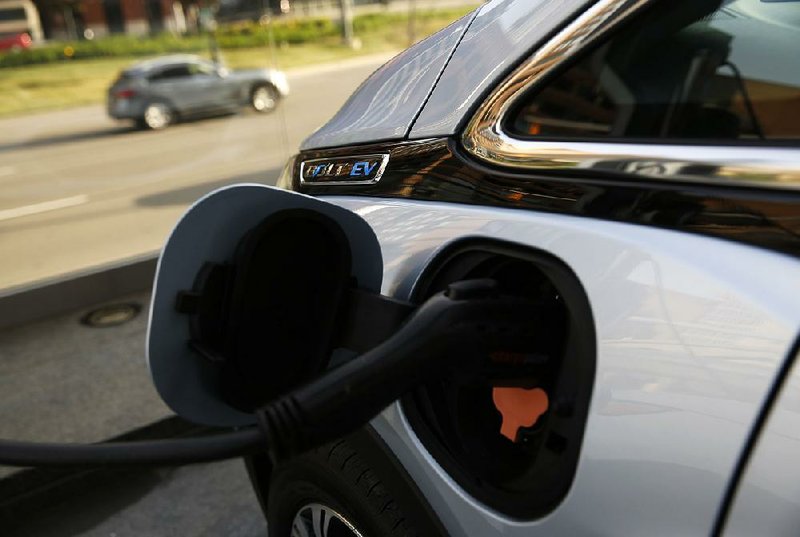Two of the biggest automakers and California officials are pushing back on the rollback of U.S. fuel economy standards proposed by President Donald Trump's administration.
General Motors Co. plans to propose that instead of opposing California's so-called zero emission vehicle sales mandate, federal regulators should instead embrace a nationwide electric-car sales program starting in 2021, Mark Reuss, GM's executive vice president of global product development, said Friday.
Honda Motor Co., meanwhile, took exception to Trump's proposed freeze on mileage standards and called for steadily increasing requirements to continue.
The responses, to be proposed in formal comments to regulators, mark one of the clearest signs yet of the auto industry's misgivings about the proposal to cap federal fuel-economy requirements in 2020 and unwind California's power to set its own vehicle efficiency standards and its zero-emission vehicle mandate.
A public comment period ended at midnight Friday.
"We know that we can do better" than the Trump proposal, Reuss told reporters in advance of the deadline. "We know that the industry can do better than that."
GM says a nationwide program could put 7 million long-range electric cars on the road and slash 375 million tons of carbon dioxide emissions by 2030, compared with existing zero-emission vehicle mandates.
In comments Friday, the California Air Resources Board called on the Trump administration to withdraw its plan. "Finalizing this proposal would worsen air quality for the most vulnerable, waste billions of gallons of gasoline, forfeit our best chance to fight climate change, and results in years of uncertainty in the marketplace, thereby stifling job-creating investments," Richard Corey, the board's executive officer, said in a letter to federal regulators. "The only clear winners from the efficiency-killing proposal are oil companies."
The Environmental Protection Agency and the National Highway Traffic Safety Administration in August recommended keeping federal fuel economy requirements at 37 miles per gallon from 2020 through 2026, instead of raising them to roughly 47 mpg by 2025 under rules adopted by President Barack Obama's administration. The agencies also want to revoke the most populous U.S. state's authority to adopt vehicle efficiency rules of its own, including its electric-car mandate.
While the auto industry sought relief from the Obama rules, carmakers view the Trump administration's response as too aggressive. They fear it could force them to build vehicles for California and 12 other states that follow similar standards, and another fleet for the rest of the nation. That, said Reuss, would be "very costly, and frankly unnecessary."
Automakers also worry about a drawn-out court fight.
"GM is taking a leadership position in at least offering an alternative to what could be this endless battle between the federal government and California," said Michelle Krebs, an Autotrader analyst. "Whether the administration will accept it, that's another question."
In its comments on the U.S. proposal, Honda said it disagreed with the Trump administration's plan for revoking California's rule-making authority and that key elements of the federal government's analysis on traffic safety are flawed and should be scrapped.
Honda said pursuing the administration's preferred option would "bring years of uncertainty for the auto industry" while state and federal regulators duke it out in court.
"A far better path would be for federal and state policy makers to negotiate a national program that is acceptable, if not ideal, for all parties including automakers," Honda wrote.
Honda also recommended that the EPA maintain greenhouse gas targets that grow tougher each year instead of freezing them.
Information for this article was contributed by Jennifer A. Dlouhy of Bloomberg News.
Business on 10/27/2018

